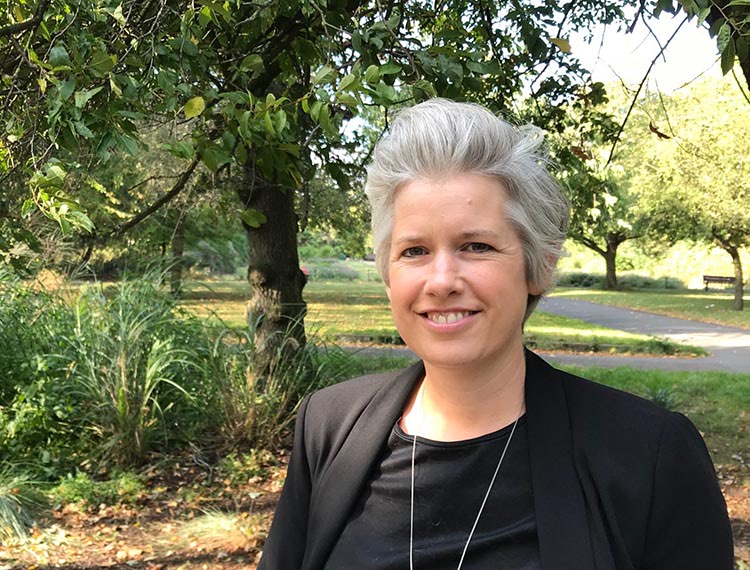‘Character education’ is not just the latest buzzword, it’s a necessity

Character Education: The Experience List Can Help Build #EmotionalIntelligence #EI
Every day, we see teenagers doing amazing things for their DofE. Getting out of their comfort zone. Making a difference in their community. Upskilling for their future career. But we also know that some young people, especially those from disadvantaged backgrounds, might never get the opportunity to do this.
There’s increasing recognition that enabling the development of certain character traits, such as confidence, resilience and independence, can improve young people’s educational attainment, job prospects and overall wellbeing.
Indeed, 2019 saw the publication of the UK Government’s guidance on character education and the introduction of the new Ofsted inspection framework.
For FE providers in England, the Ofsted framework looks beyond the academic, technical or vocational curriculum and includes an assessment of students’ personal development – things like how young people shape their interests and talents, how they learn to be active citizens and how they prepare for “life in modern Britain”.
A Checklist for Teens
Against this backdrop, we recently surveyed more than 4,000 people, including members of the public, business leaders, education professionals, parents and teenagers, to find out which activities and experiences they think are vital for building character. We then created a checklist to guide and inspire young people on the road to adulthood.
44% of the 14 to 18-year-olds we spoke to don’t think they are given enough opportunities to become more confident, resilient or independent. More than half of them have never volunteered in their community (52%) or had a part-time job (51%). Many have never campaigned for something they believe in (43%) and a fifth have never been for a walk or hike in the countryside (20%).
Our new checklist – The Experience List: 25 of the best character hacks for teens – covers a range of activities and experiences and is backed by top employers, including Heathrow Airport, Barclays LifeSkills and RSM.
DofE launching The Experience List Following Introduction of New Character Development Ofsted Requirement: CAMPAIGN, DIGITAL DETOX AND CONNECT WITH OLDER GENERATIONS: THE NATION’S BEST CHARACTER HACKS FOR TEENS DofE survey of more than 4,000 people… https://t.co/Y0IcqBCeM9 pic.twitter.com/AULqp6oQp0
— FE News – The #FutureofEducation News Channel (@FENews) January 16, 2020
It includes fun activities like ‘Go to a festival’ and ‘Create a piece of art or music’ as well as some more serious recommendations, such as ‘Take a digital detox’, ‘Get to know an older person’ and ‘Learn to manage your own money’. With activism on the rise among young people, the list also suggests ‘Campaign for something you believe in’ and ‘Try vegetarianism or veganism’.
As we head into 2020, we believe these kinds of experiences and activities are more important than ever. The world is increasingly complex and challenging – almost half of the adults we surveyed (44%) admitted they wouldn’t have been able to cope with the pressures young people face today. More than three-quarters of the teenagers who took part in our survey (79%) acknowledged that strength of character enables them to better manage mental health problems and, in a previous study, 93% of DofE Award holders told us that the DofE had boosted their employability.
Starting the conversation
With the publication of our research and checklist, we’re calling on the UK Government to ensure that all schools receive the right support to provide character education, particularly for disadvantaged young people. We believe The Experience List could be formalised for use by secondary schools and colleges in the same way that the My Activity Passport is available as a tool for primary schools. Many education professionals have told us they would welcome more resources in this area.
Of course, character education shouldn’t just be about fulfilling government requirements, the focus should be on enhancing students’ future work opportunities and improving their mental and physical wellbeing. With Ofsted’s new inspection framework putting more emphasis on life beyond the classroom, the DofE can play an even bigger role in helping schools and colleges to excel.
We take young people out of their day-to-day lives and give them the chance to learn new skills for life and work, meet new people and give back to their community. Over the last 60 years, we’ve seen first-hand how our programme helps to build character.
Inspirational teens like Greta Thunberg, Jack Andraka and Amika George rightly make the headlines but millions of other young people deserve to be just as confident, just as resilient, just as independent as them. As Dot Hakim, a Gold DofE Award holder who sat on our research panel puts it, young people have to be able to “develop the right skills for this tough world”.
We hope The Experience List will give FE teachers and leaders a way to start an important conversation – one that empowers the younger generation to be well-rounded, caring, healthy go-getters.
Ruth Marvel, Chief Executive, The Duke of Edinburgh’s Award
Go to DofE.org to view The Experience List in full and to find out more about running the DofE in your school or college.

Responses